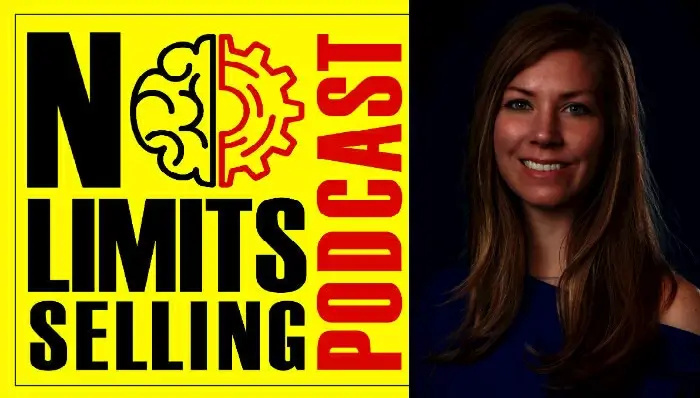Exploring Team Dynamics: Strategies for Effective Leadership by Amanda Coleman-Phelps
Amanda is the 6th generation of the Nelson Coleman Jewelers family business and is currently first female owner. She is a Graduate Gemologist and Certified Gemologist Appraiser with AGS. With a Bachelor’s Degree in Business, she has worked to create a diversified business full time since 2004. Other achievements: Board member for Maryland Retail Association and AGS, President of the AGS Maryland National, Capital Guild, member of Center Club of Baltimore and Baltimore Chapter of Accelerant and Vistage.
Podcast Highlights:
- Give your people the benefit of the doubt
- The only thing you can control is your own behavior
- Good leaders walk their talk
- Care for your employees and they will take care of your customers in the same way

Summary
Introduction
Amanda Coleman Phelps and Umar reminisce about their first meeting four years ago. At that time, Amanda was an executive at Nelson Coleman Jewelers, but she has since risen to the top position. She emphasizes the family-oriented nature of the business.
A notable memory shared is of a trunk in the basement of the store that belonged to Amanda's great-grandfather when he migrated to America. This trunk symbolizes the rich history and legacy of the business. Amanda reveals she is the sixth generation in the business, which brings its own set of pressures but also motivates her to excel.
Legacy and Vision
Amanda speaks about the vision her parents had for the company, which was centered around family and ensuring the business's continuity. Their primary goal was to provide for their families and ensure the business transitioned to the sixth generation. Amanda's vision builds on this foundation. She envisions growth in multiple locations and aims to offer a comprehensive jewelry purchasing experience for clients, from bridal selections to eventual resale.
Exploring Team Dynamics
Amanda believes in leading by example. She emphasizes the importance of how things are said, not just what is said. She also discusses the challenges of working in a family business, especially when it comes to handling conflicts. Amanda values transparency, punctuality, and professionalism. She also highlights the importance of admitting mistakes and apologizing, a lesson she learned from her father.
Employee Engagement
Amanda stresses the importance of creating an environment where employees can grow and thrive. She believes that leaders should be role models for their teams. If employees see their leaders genuinely caring for them, they are more likely to treat clients with the same level of care and authenticity.
Personal Growth and Insights
Amanda shares that her perspective on leadership and compensation has evolved over the years. While she once placed significant importance on pay, her current leadership role has shifted her focus. She now finds greater fulfillment in seeing her team succeed and grow financially within the business.
Time Management in Leadership
Amanda Coleman Phelps emphasized the significance of time management in leadership. Drawing inspiration from Rob Slee's book "Time Really is Money", Amanda highlighted how leaders often get entangled in day-to-day tasks, sidelining their primary role of strategizing and envisioning the company's future.
She believes that a leader's true value is realized when they prioritize tasks that align with their core responsibilities, ensuring that their time is invested in fostering growth, innovation, and long-term success for the organization.
Book Recommendation
Amanda recommends the book "Time Really is Money" by Rob Slee. The book helped her evaluate how she spends her time and prioritize tasks that align with her role as a leader.
Conclusion
Umar thanks Amanda for sharing her insights and experiences on the podcast. He encourages listeners to leave a five-star rating on iTunes and directs them to his website for additional resources.
Questions & Answers
Who is Amanda Coleman?
What did Amanda and Umar discuss during the podcast?
What book did Amanda recommend during the podcast?
How does Amanda view leadership and employee engagement?
What lessons did Amanda learn from her father?
How has Amanda's perspective on leadership evolved over the years?
Don’t miss this opportunity to transform your real estate career with one-on-one coaching. As an experienced real estate coach, I, Umar Hameed, am dedicated to helping you unlock your full potential and achieve your real estate goals. To learn more about who am I and my clients ↓
If you’re ready to take the next step, book an appointment with me today and begin your journey toward success in the real estate industry.
